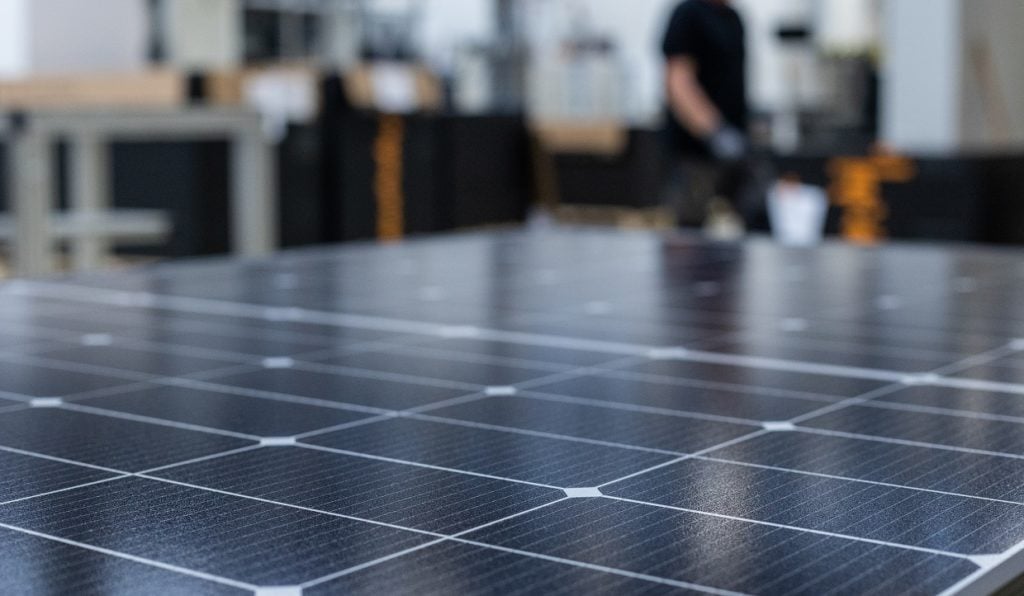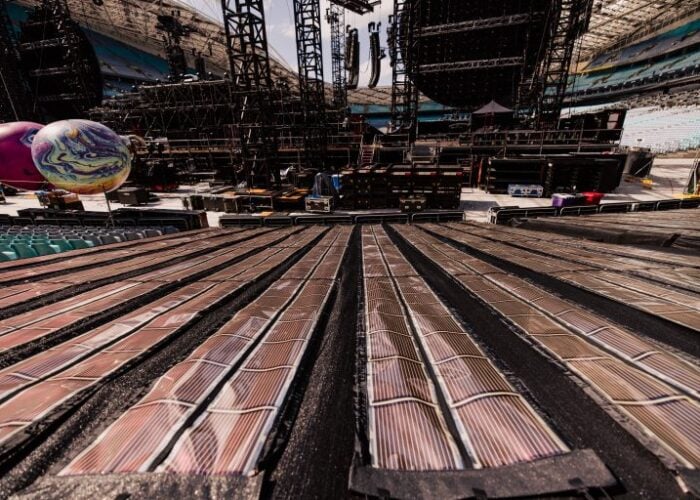
Europe needs to galvanise a competitive PV manufacturing ecosystem in the same vein as the US Inflation Reduction Act (IRA), according to the European Solar Manufacturing Council (ESMC).
The ESMC, a representative body for the European PV manufacturing industry, outlined its desires for a more expansive programme of support and investment into manufacturing in a letter to the European Commission ahead of the launch of the European Solar PV Alliance on 9 December.
Try Premium for just $1
- Full premium access for the first month at only $1
- Converts to an annual rate after 30 days unless cancelled
- Cancel anytime during the trial period
Premium Benefits
- Expert industry analysis and interviews
- Digital access to PV Tech Power journal
- Exclusive event discounts
Or get the full Premium subscription right away
Or continue reading this article for free
The letter, which can be read here, outlined eight proposals described as “fast, concrete, mature and comprehensive” measures to maximise the success of the alliance. The top-line request was an alignment with the proposals of the US IRA, to be delivered either through tax incentives or direct grants to manufacturing projects.
The letter said that “on a global scale, the European PV manufacturing industry currently is almost non-existing, due to fierce competition and an unlevel playing field”.
The European Solar PV Alliance will aim to address these concerns, and secretary general Johan Lindahl of the ESMC said: “This marks an important cornerstone in developing a competitive European PV manufacturing industry across the full PV value chain.”
The ESMC said it welcomed the EU’s target of 30GW of PV manufacturing by 2025, but proposed a greater, extended target of 80GW by 2030.
It asked for a €20 billion (US$20.9 billion) special finance vehicle to de-risk investments and allow for greater resilience, akin to the European Chips Act that was introduced to bolster the bloc’s resilience and competitiveness in semiconductor technology.
The proposal letter also highlighted significant offtake agreements as a key measure for developing a European manufacturing culture, to drive demand for locally manufactured PV in the face of the significant incentives given in other countries. This year, India has seen an extended pair of incentives – the basic customs duty tariff on module and cell imports and the production-linked incentive scheme, which aims at adding 65GW of manufacturing capacity.
A further measure was the removal of permitting red tape for manufacturing plants. Earlier this year, the EU introduced an emergency regulation under the REPowerEU scheme that mandated shorter permitting times for PV deployments. The ESMC expressed a desire for an extension of this principle of ‘positive administrative silence’ to manufacturing permits.
“Supportive policies are the backbone of the competitiveness of the European PV industry,” said Žygimantas Vaičiūnas, policy director at ESMC.
“The European PV manufacturing ‘house is on fire’ in a view of the urgency created by the US IRA.”
PV Tech recently examined the role that domestic European manufacturing could play in addressing the concerns around the traceability of Chinese-imported modules, as well as the economic incentives around market sustainability and energy prices that major players in the European market have highlighted.
You can read the full list of the ESMC’s proposals in detail here.






